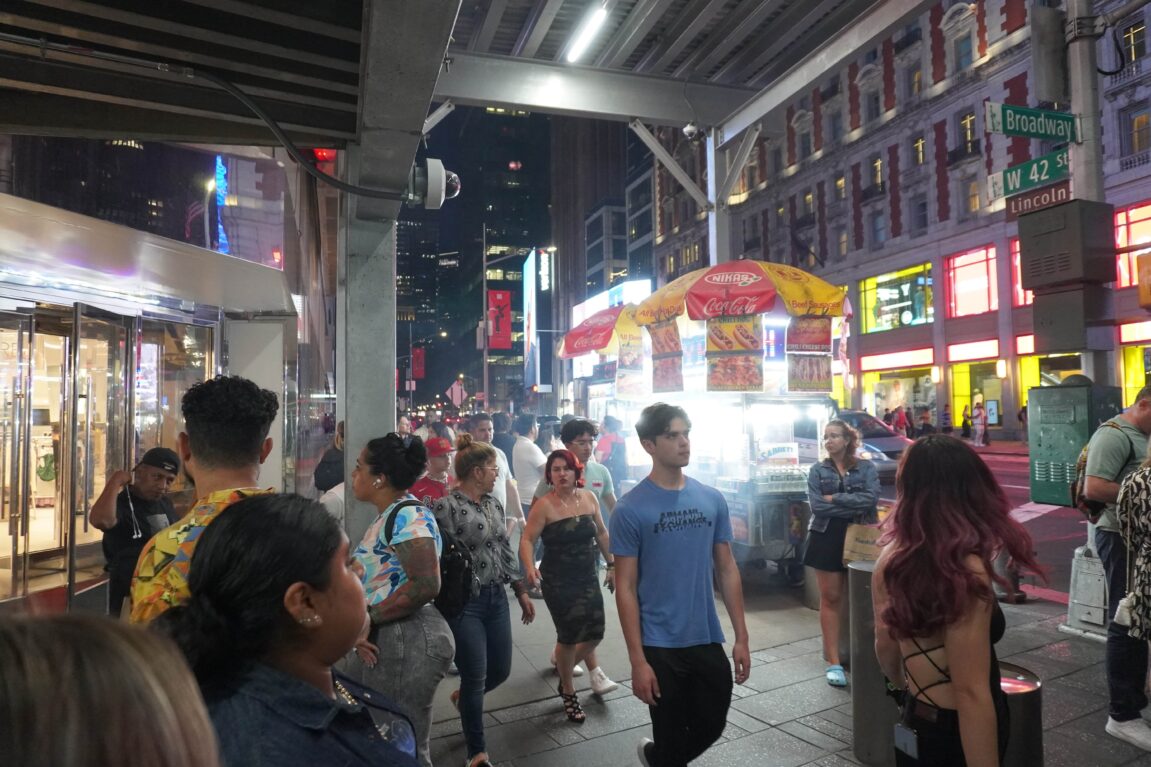Subscribe to our E-Letter!
Subscribe to our e-mail and stay up-to-date with news and resources from street vendors around the world.
by Daniel Peralta
On the streets of large cities, a vibrant but often invisible economic force is constantly on the move. Street and market vendors, with their stalls full of fresh produce, traditional foods, and handicrafts, not only provide essential goods and services, but are also a pillar of the local economy and a reflection of cultural diversity. However, for a growing sector of these workers, vulnerability is a daily reality, especially for migrant street vendors.
These men and women, who have left their home countries in search of a better life, often face unique and daunting barriers. Beyond the usual challenges of street vending—lack of social security, precarious working conditions, and the risk of eviction—migrants face discrimination, xenophobia, and profound legal insecurity. In many cases, they operate outside formal systems, without licenses or permits, making them easy targets for fines, confiscation of merchandise, and, in the worst cases, deportation.
It is in this context of struggle and resistance that organizations such as StreetNet International demonstrate the power of global solidarity. As a global alliance of unions and associations of workers in the informal economy, StreetNet recognizes that the challenges faced by street vendors know no borders. Its mission does not stop at a country’s borders; its support extends to all people who earn their living on the streets, including, crucially, migrants.

StreetNet International’s work is a clear example of how unity is strength. By connecting its member organizations in more than 50 countries, they create a network of knowledge and mutual support. This global network is fundamental to supporting migrants. One of the most prominent member organizations in this work is the Street Vendor Project (SVP), based in New York City. With a membership composed largely of migrants, the SVP is a beacon of hope and a role model. Its daily work of legal advocacy, community organizing, and political mobilization resonates with the struggle of migrant street vendors around the world.
StreetNet International directly supports the work of organizations such as the SVP by providing a global platform to amplify their voices and experiences. This support manifests itself in several ways:
Exchange of best practices: StreetNet facilitates organizations such as the SVP to share their successful strategies for organizing migrants. Crucial issues such as legal rights training for those who do not speak the local language, combating discrimination, and creating mutual support networks in multicultural communities are discussed. SVP’s experience in defending the rights of undocumented vendors, for example, can serve as an invaluable model for associations in other parts of the world.
Visibility and recognition: StreetNet International works to raise the profile of migrant street vendors, not only as essential workers but also as advocates for their own rights. Through communication campaigns, international forums, and the dissemination of case studies, StreetNet highlights the contributions of migrants to the local economy and the cultural richness they bring. This helps to counter negative narratives and put pressure on governments to implement policies of inclusion rather than exclusion.
Lobbying in international forums: The alliance uses its influence in international bodies such as the International Labor Organization (ILO) to advocate for policies that protect all workers in the informal economy, regardless of their immigration status. StreetNet advocates for the ratification of conventions that guarantee freedom of association and the right to social protection for all workers, a fundamental step toward improving the lives of migrant vendors.
The connection between the local work of the Street Vendor Project and the global reach of StreetNet International is a clear example of how the struggle for labor justice is a collective effort without borders. StreetNet’s support not only strengthens the voice of migrants in New York, but also inspires other organizations to defend the rights of migrants in their own communities. Together, they are building a future where street work is recognized and respected, a future where migration is not a source of vulnerability, but a force for growth and economic resilience.
Daniel Peralta is from Guatemala, in the Americas region, and is a member of FENTRAVIG (National Federation of Workers and Independent Vendors of Guatemala). He is part of the media group of FENTRAVIG and currently serves as the Regional Communicator for the Americas at StreetNet International. As the child of vendor parents, Daniel has learned the importance of working hard every day to succeed and be a positive change for future generations. Inspired by Robert Baden-Powell’s words, “Try to leave this world a little better than you found it,” he is committed to making a difference through his work.

By entering your personal data and clicking “Suscribe,” you agree that this form will be processed in accordance with our privacy policy. If you checked one of the boxes above, you also agree to receive updates from the StreetNet International about our work